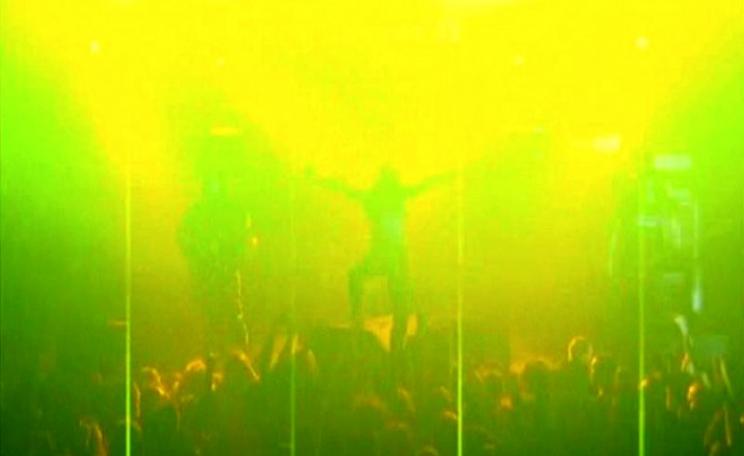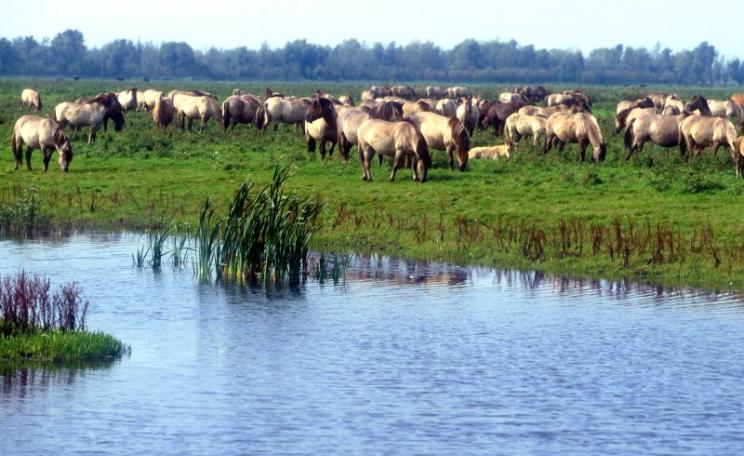In various articles and books, I have often praised the old ways. The most recent edition of the Idler is called Back to the Land, and we have taken inspiration from William Morris and the like, as well as the writers on husbandry of old, such as Columella and Virgil. The great radical journalist of the early 20th century, Gilbert Keith Chesterton, wrote, 'we must go back to freedom or forward to slavery'. At the same time, I have attacked projects like Facebook, because of the avowed anti-nature views of its principal backer, Silicon Valley entrepreneur Peter Thiel.
However, something niggles. Well, a couple of things niggle, in actual fact, about this view. One is the phenomenon of the Chinese mega-city. I have been reading about Chongqing, which is one such of these developments. Chongquing is a city numbering over 30 million inhabitants. Yes, 30 million. It's exactly like Mega-City One, the gigantic metropolis imagined by the geniuses behind the comic 2000AD. Mega-City One is a post-nuclear conurbation. Outside its walls lie a nuclear wasteland. There is no countryside, only cities.
Every day, something like 1,500 migrants arrive in Chongquing. They flock to the city from the countryside, hoping for a new life, free from the hardships of subsistence farming. Many are destined to end up as 'bang bang men', porters who carry heavy loads around the city, and present themselves for employment in scenes reminiscent of 19th century hiring fairs.
Agree, disagree? Leave your comment here
One Australian academic, Douglas Sanders, has written in praise of these mega-cities. He, like Hobbesian anti-nature philosopher Peter Thiel, sees nothing good about the life of a small farmer. He believes that people are happier when earning a wage in a job. He attacks back-to-the-landers as 'romantic', and believes that the coming decades will see a 'huge and final shift from rural areas to cities'. But his own view of the delights of wage slavery are themselves the fantasies of the academic who doesn't have to experience life as a bang bang man. He also does not talk about quality of life, beyond the crude indicator of 'higher wages'.
Still, the massive scale of such cities makes the attempts of one Guardian reader like me to grow their own vegetables in an effort to reduce their oil and carbon consumption look a little insignificant. If millions of Chinese are 'coming out of poverty', as the phrase goes, every year, then logically we would have to counter-balance that with a million Britons going into poverty, or 'downshifting'. Clearly the poor consume less than the rich and place fewer strains on resources.
Now, however much I believe that we need a connection to the earth and to nature, I can't very well go over to Chongquing and say to the new migrants, 'look here, I think you'll find that you'll be much happier back home in the village with your quaint old ways, rather than seeking fulfilment in this hellish den of materialism and greed'. So what's the point?
Another fact that niggles me is that there is plenty in the new world to celebrate. I still cannot quite believe that video conferencing, via Skype and Oovoo, actually exists, and I've had lots of fun with it. My wife has recently bought an iPad, and what a marvellous device it is (although my joy is tempered by the horrifying knowledge that workers in the Chinese iPad factories have been committing suicide).
It was some comfort to my confused brain, therefore, to read the following lines in Ovid's Fasti, his great poem that describes all the feast days of ancient Rome:
laudamus veteres, sed nos tris utimur anise;
mos tamen set aeque dings uterque coli.
This means: 'we praise the past, but use the present years; yet both are customs worthy to be kept.' Sanders is wrong that the countryside will be completely abandoned in some sort of Brave New World scenario. But clearly also cities will continue to grow and thrive. And that is good: the medieval saying was 'city air makes free', and for a certain sort of peasant, to move from farm to city was truly liberating. Old world and new must live together.
| READ MORE... | |
 |
COMMENT Starting a business has never been so liberating... Find the hidden entrepreneur in you to free yourself from slavery to corporate and state authority, says Tom Hodgkinson |
 |
COMMENT I tried natural gardening. It was a disaster Idleness usually sees Tom through most of life's trials. But not gardening. Oh no. Nature took one look and ran amok |
 |
COMMENT No-one put Keats on a well-being course and a dose of Prozac An obsession with happiness science is just the chemistry set for a new opiate of the masses. Give me misery, says Tom Hodgkinson |
 |
COMMENT Stuff your face like a pre-Reformation Christian We've inherited an unhealthy, puritan attitude to food and sensory pleasure, says Tom Hodgkinson. Taking a leaf out of the books of our medieval ancestors would do us all good... |
 |
COMMENT Toughen up: bee disease is nothing new There's no great conspiracy around bee deaths - hive diseases have been with us for millennia. No one who keeps livestock should expect an easy ride... |





